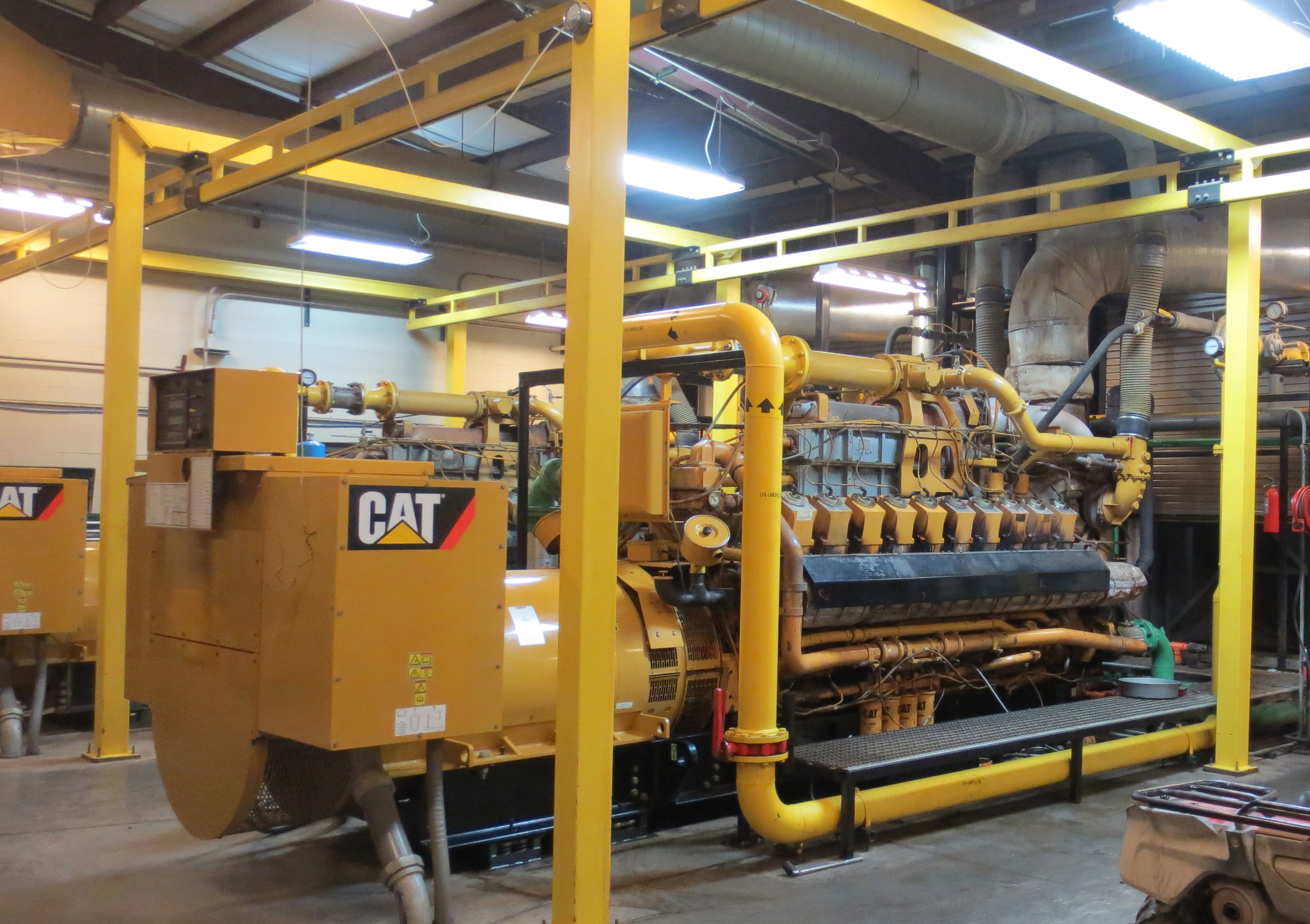Cogeneration
Cogeneration is the simultaneous generation of power and heat. It is also known as Combined Heat and Power (CHP). It is the most efficient and cleanest option for energy generation for facilities that use large amounts of heat in their processes or buildings. The typical setup is a natural gas fueled engine that drives an electric generator, creating both heat and power.
Benefits in a nutshell:
Lower cost
Higher efficiency
Higher reliability
Cleaner

Benefits explained
- Cogeneration leads to immediate reduction in electric costs; the power produced is typically cheaper than power bought from the grid
- The heat is essentially a (free) bonus, which leads to a reduction in heating costs
- Cogeneration increases the resilience of operations as electricity can be produced even during grid-power outages
- Cogeneration is positive for the environment and for human health because its efficiency is much higher than that of grid electricity (75-90% vs. 40%) and because gas burns very clean. This results in more than 60% reduction in CO2 emissions and an almost 100% reduction in toxic emissions.
- Cooling costs can be reduced if absorption coolers are added.
Our Services
Quick scan and consulting
Engineering, Procurement and Construction (facility owner invests in Cogeneration system)
Leasing and Power Purchase Agreements (ECS invests in Cogeneration system)
Typical steps
1. First high level analysis of the facility’s electricity and gas (heat) consumption patterns and installed equipment and infrastructure
2. Go / No-Go based on a discussion of above analyses
3. In-depth analysis including high level engineering and calculations, interactions with the utility regarding rates, interconnection and project preparations
4. Decision on system size, type of CHP technology, location, integration in the facility and related equipment options (cooling, hot medium buffers, heat pumps)
5. Implementation
